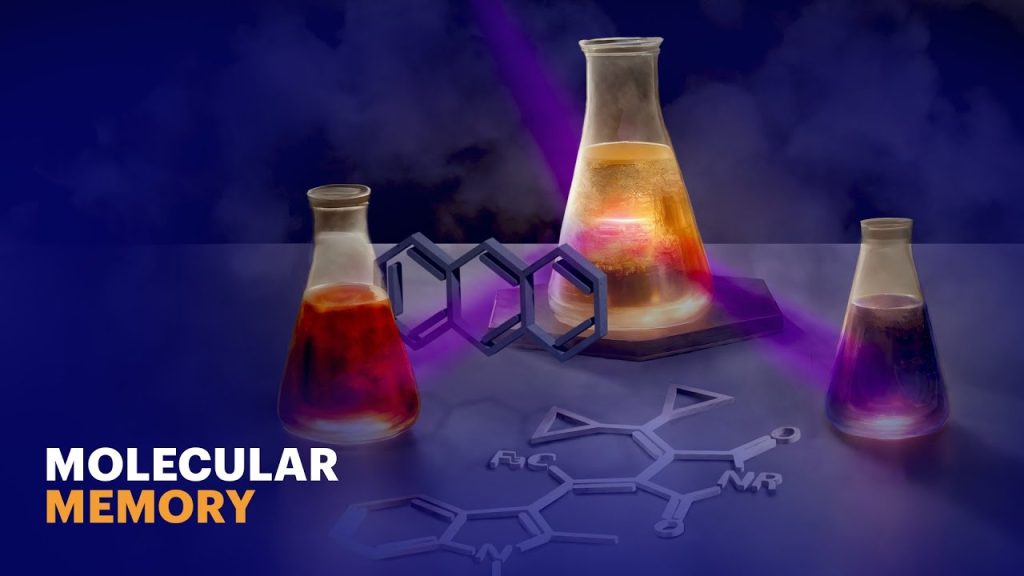In the realm of molecular science, researchers are continually pushing the boundaries of what is possible. One recent breakthrough comes from the Institute of Organic Chemistry and Biochemistry of the Czech Academy of Sciences (IOCB Prague), where scientists have developed a remarkable molecule capable of transitioning between three distinct states in response to external light pulses. This advancement not only challenges the conventional limits of molecular memory but also paves the way for the development of highly sophisticated molecular chips with unprecedented storage capacities. In this article, we delve into the significance of this discovery, its implications for future technologies, and the innovative methods employed to achieve it.
Unlocking the Potential of Photoswitch Molecules: Photoswitch molecules, known for their ability to undergo structural changes in response to light stimuli, have long been of interest to researchers seeking to harness their potential for information storage and processing. Traditionally, these molecules exhibit binary switching, toggling between two distinct states. However, the latest breakthrough from IOCB Prague introduces a molecule capable of transitioning between three states, significantly expanding the information storage capacity at the molecular level.
Lead researcher Dr. Tomáš Slanina and Ph.D. student Jakub Copko spearheaded the development of this groundbreaking molecule, overcoming previous challenges associated with maintaining control over transitions between individual molecular forms. Through meticulous experimentation and innovative techniques, the research team successfully demonstrated precise and selective switching between three distinct states, laying the foundation for the next generation of molecular memory devices.
The Significance of Molecular Memory: The implications of this advancement extend far beyond the realm of theoretical chemistry, with potential applications spanning diverse fields such as computing, data storage, and biomedical research. Molecular memory devices hold the promise of revolutionizing information technology by offering unparalleled storage densities and energy efficiency compared to traditional silicon-based chips. By harnessing the inherent properties of photoswitch molecules, researchers can unlock the potential for compact, high-performance computing systems with minimal environmental impact.
The Tri-State Photoswitch Molecule: At the heart of this breakthrough lies a novel photoswitch molecule capable of transitioning between three distinct states in response to specific light pulses. Unlike traditional binary switches, which primarily alter color properties, the tri-state molecule undergoes significant geometric changes upon transition, offering enhanced versatility and functionality. This geometric flexibility opens up new avenues for tailored molecular design, allowing researchers to engineer molecules that precisely fit into target active centers or are strategically positioned to optimize molecular interactions.
Practical Applications and Future Prospects: The potential applications of tri-state photoswitch molecules are vast and varied, with researchers only beginning to scratch the surface of their capabilities. From advanced data storage systems to programmable molecular machines, the versatility of these molecules offers unprecedented opportunities for innovation and discovery. Furthermore, advancements in synthesis techniques, such as the development of the one-pot reaction method pioneered by Copko, have streamlined the preparation process, making it accessible to researchers worldwide.
Researchers envision a future where molecular memory devices play a central role in driving technological advancements across multiple industries. By continuing to explore the unique properties of photoswitch molecules and refining synthesis techniques, scientists aim to unlock the full potential of molecular memory and pave the way for a new era of computing and information processing.
The development of a tri-state photoswitch molecule by researchers at IOCB Prague represents a significant milestone in the field of molecular memory. By challenging the conventional limits of photoswitching and introducing new levels of complexity, this breakthrough opens up exciting possibilities for the development of molecular chips and advanced computing systems. As researchers continue to explore the potential applications of these molecules and refine synthesis techniques, the future holds immense promise for the convergence of molecular science and information technology, shaping the landscape of technology for generations to come.
